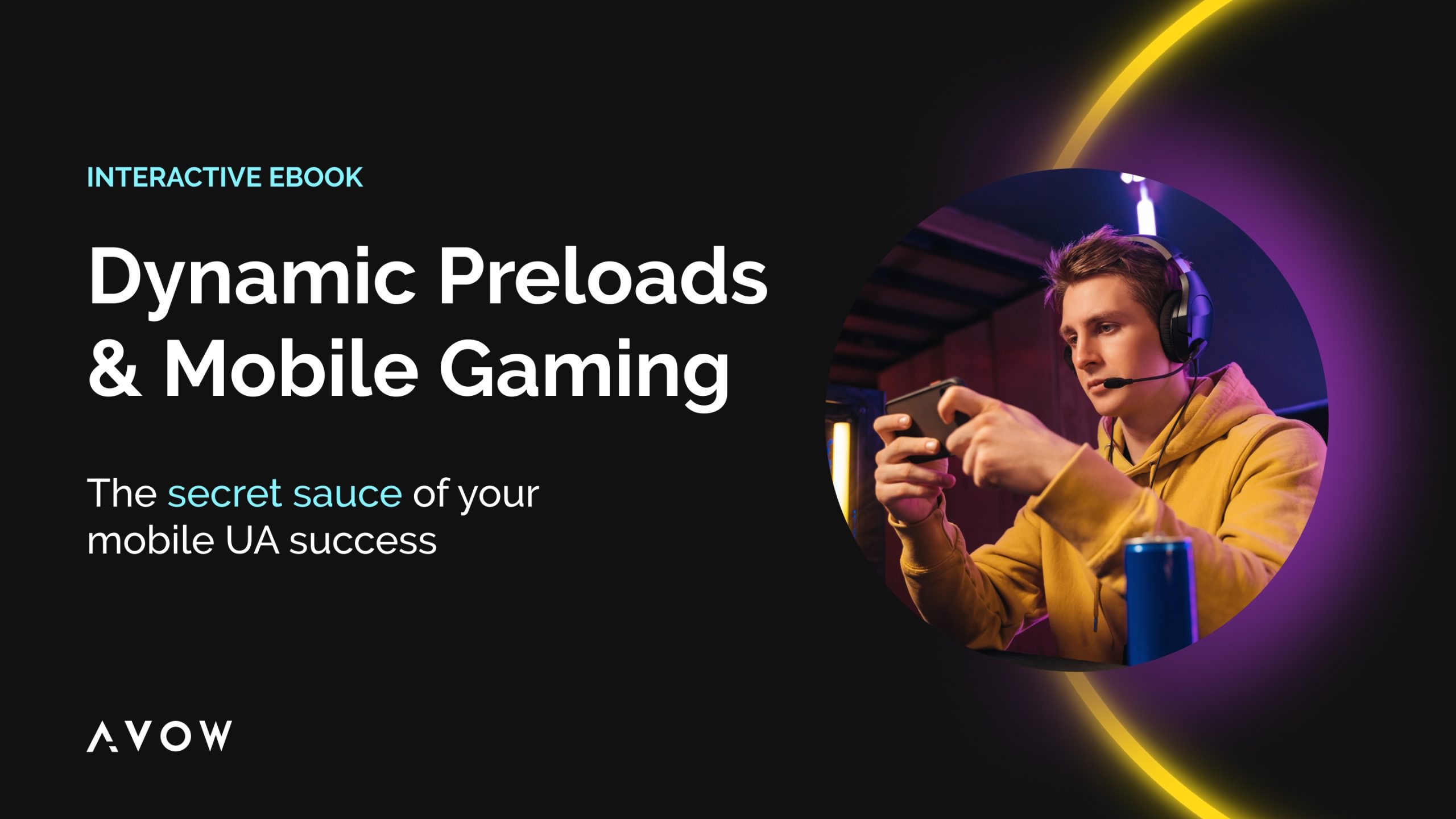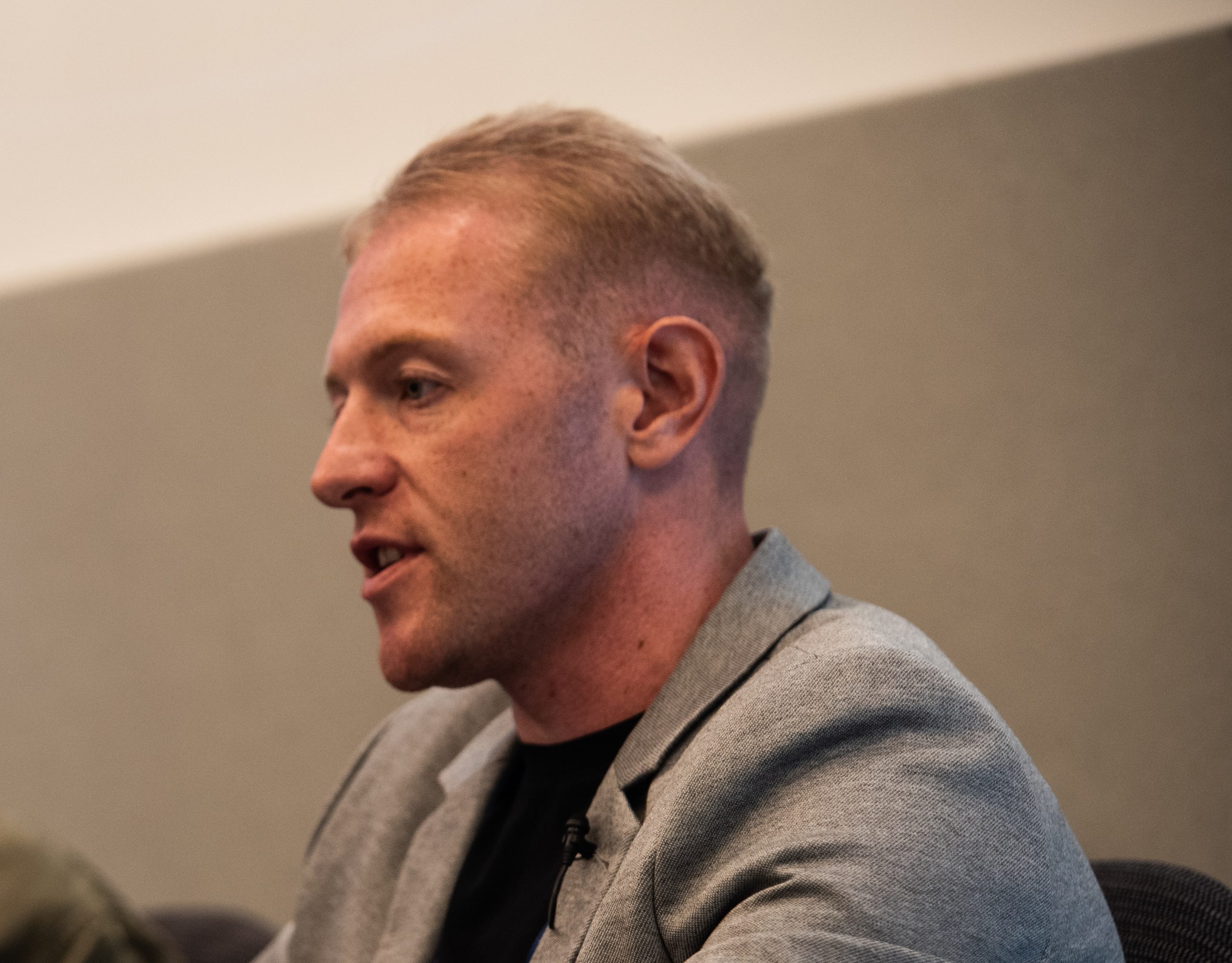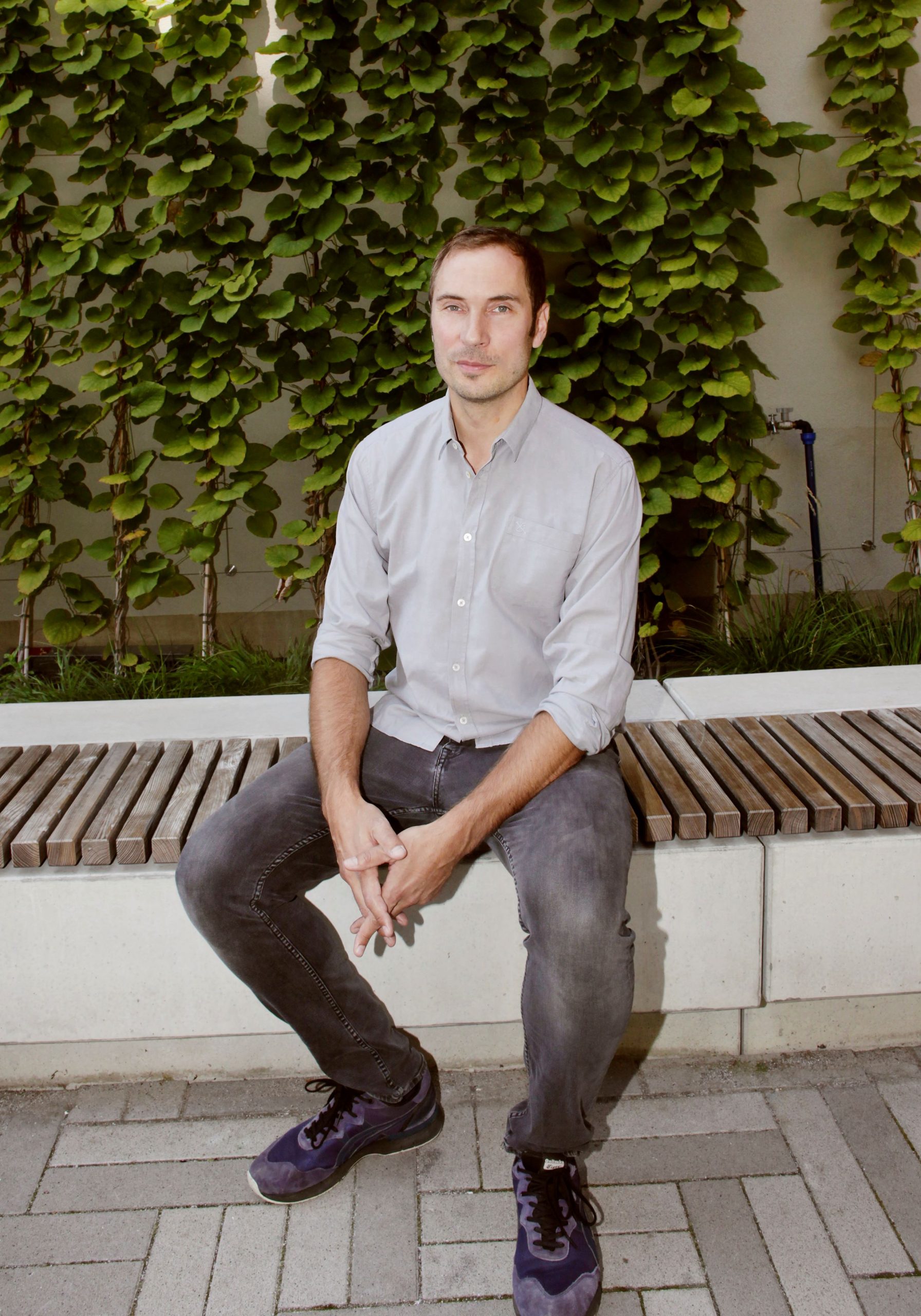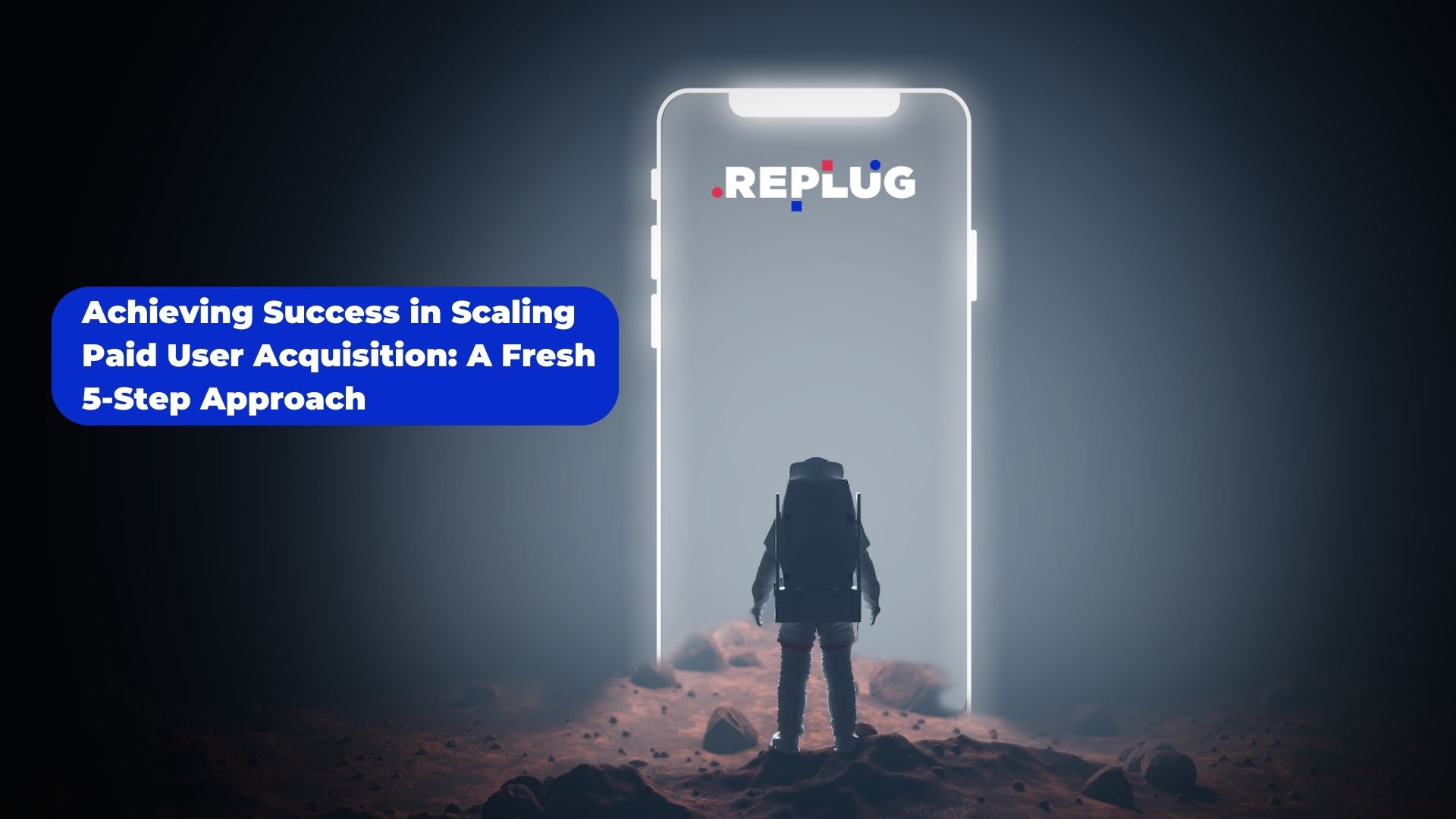Five ways to improve your Christmas campaign planning with Facebook and Instagram
- Thursday, August 8th, 2019
- Share this article:
The Facebook IQ team provides advice for brands looking to get the most out of their Christmas campaigns
 Think Christmas is all about tradition? Think again. From the introduction of Christmas trees in Britain in the 1840s to the rise and decline of family TV watching over the past half-century, people are constantly changing the way they celebrate the winter holiday.
Think Christmas is all about tradition? Think again. From the introduction of Christmas trees in Britain in the 1840s to the rise and decline of family TV watching over the past half-century, people are constantly changing the way they celebrate the winter holiday.
Today is no different, with people embracing the new tradition of Singles Day and gift shopping on mobile phones. And its crucial that brands keep up. “With so many retailers prepared to take risks to please customers, playing safe is not an option,” says Richard Perks, global director retail research at Mintel.
To keep up, however, brands need to know what consumers will do next. Thats where we can help. Facebook IQ has commissioned three major studies to generate a veritable Santas-eye view of Christmas shopping around the world. Weve worked with market research firm IPSOS to poll 43,500 holiday shoppers across 29 countries. We partnered with Boston Consulting Group (BCG) to map the top friction points across three phases of the shopper journey. We worked with consultancy Accenture to study 71,794 respondents ages 18+ across nine countries and seven verticals. And finally, weve gathered our own Facebook conversion and conversation insights.
From this research, weve discovered five key steps your brand can take to maximise growth at this vital time of year.
Go bigger, earlier
Through our research we have observed a slow but steady shift towards early Christmas shopping across all markets surveyed. Several factors have contributed to this change, including a more complex purchase funnel and the globalisation of Black Friday and Singles Day. By mid-November, a third of people in the UK say they have started their Christmas shopping (35 per cent) and one in 10 have finished the majority of their Christmas shopping (11 per cent). [1]
A few years ago, Facebook IQ identified the rise of the mobile-first shopper—a person who does the majority of her or his Christmas shopping on a mobile device. The trend toward mobile-first shopping may mean an increase in earlier shopping: Almost a quarter of mobile-first shoppers (24 per cent) say they start Christmas shopping before November, higher than those who prefer to buy in-store or on a PC. [1]
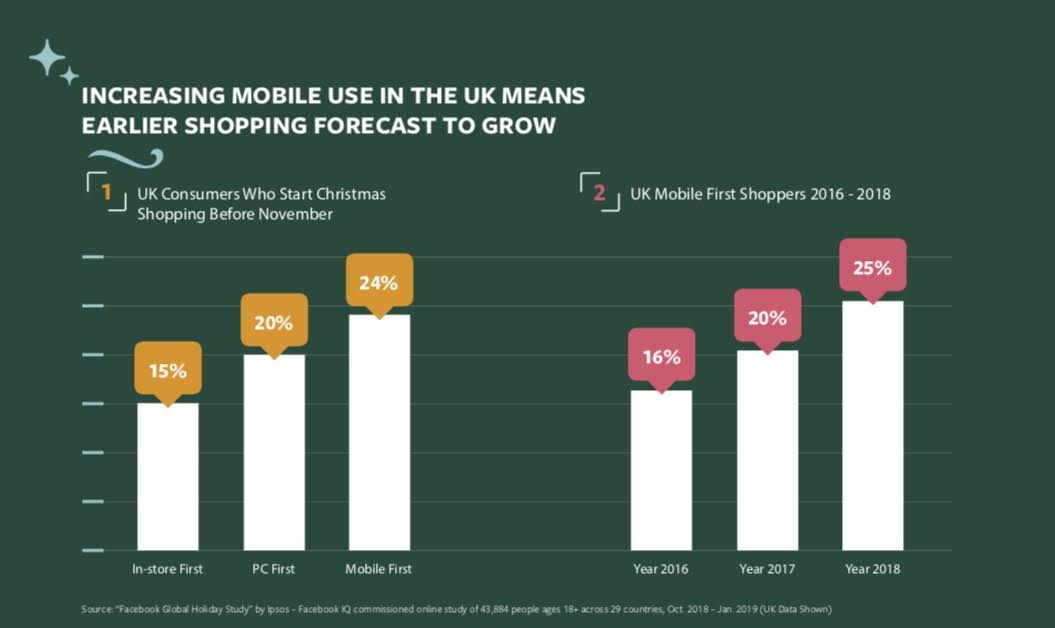 The shape of Christmas conversions on Facebook reveals the rise of new traditions. Perhaps the most notable is Single’s Day, a shopping holiday on 11 November that started in China. The increase in shopping on Singles Day is notable across Europe, with the exception of the UK. The rise of Singles Day is another factor in driving early Christmas purchases.
The shape of Christmas conversions on Facebook reveals the rise of new traditions. Perhaps the most notable is Single’s Day, a shopping holiday on 11 November that started in China. The increase in shopping on Singles Day is notable across Europe, with the exception of the UK. The rise of Singles Day is another factor in driving early Christmas purchases.
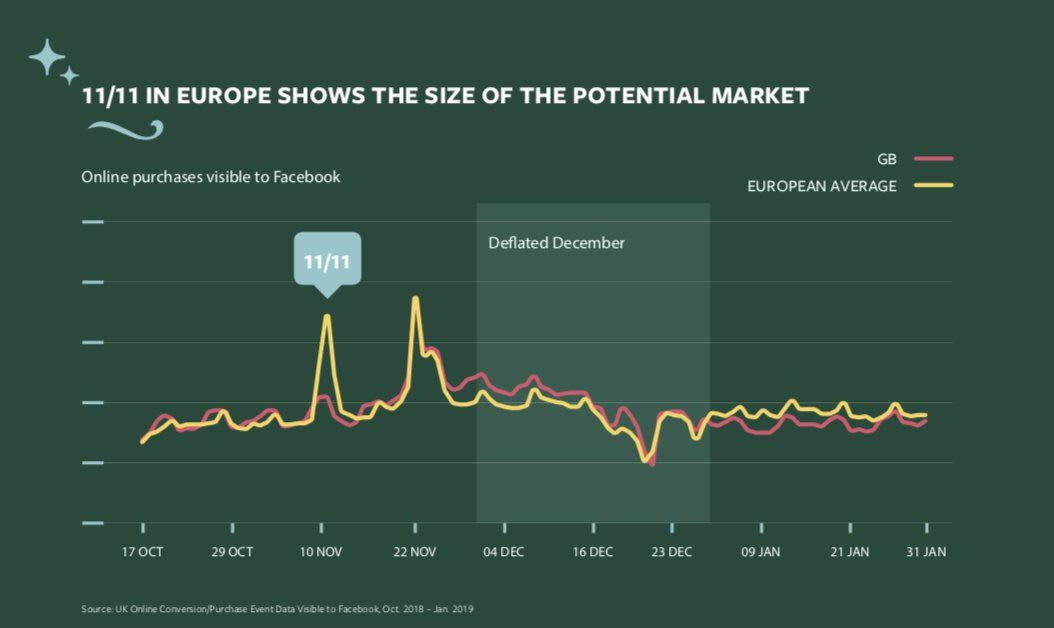 Consider how you can create a sense of urgency around Christmas purchasing and take money out of the market earlier. The shift to early shopping requires earlier planning. Explore what you can do in August or September to test your campaign strategy, built best practices and identify audiences you want to target. By the time the Christmas period kicks off, you’ll be ready!
Consider how you can create a sense of urgency around Christmas purchasing and take money out of the market earlier. The shift to early shopping requires earlier planning. Explore what you can do in August or September to test your campaign strategy, built best practices and identify audiences you want to target. By the time the Christmas period kicks off, you’ll be ready!
Guarantee window presence
Shop windows are an iconic part of the Christmas retail experience. But dont forget to extend that magic to mobile. Many people find what they want to buy on their phones, with consumers naming the Facebook family of apps and services in the top three channels for discovering new products and brands.
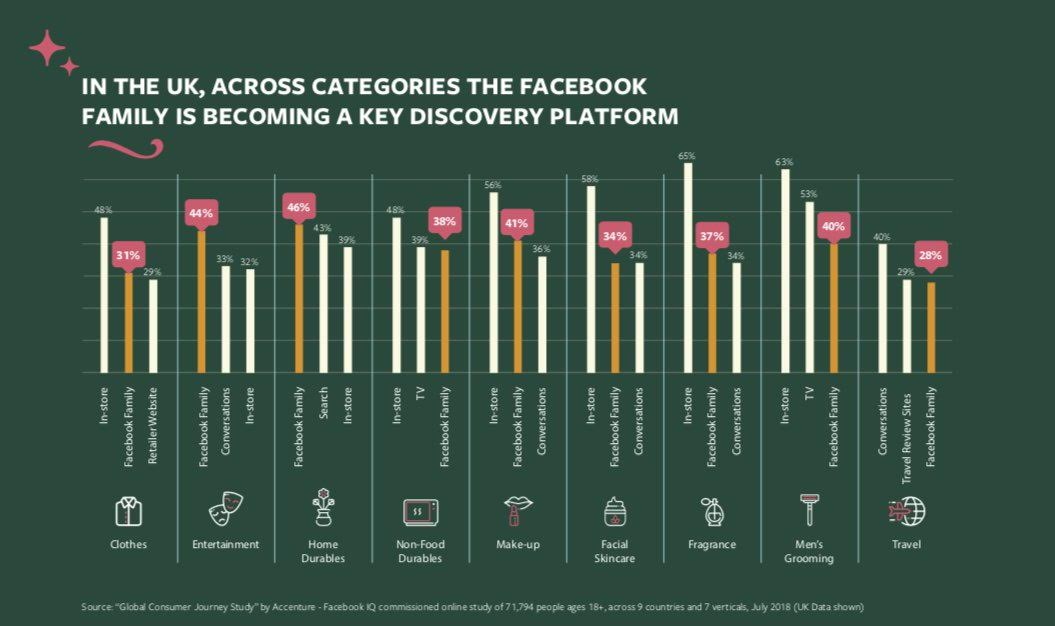 “Social is the new shop window,” according to Deloittes 2019 retail trends report. [2] By advertising with Facebook at Christmas, your brand is guaranteed ‘window space’ at this crucial time of the year.
“Social is the new shop window,” according to Deloittes 2019 retail trends report. [2] By advertising with Facebook at Christmas, your brand is guaranteed ‘window space’ at this crucial time of the year.
Automate the peak period
Using our conversion data, we can see that Black Friday has grown from a single day of activity into a fortnight. And its popularity in the UK continues to grow. In 2018, a third of British adults said they shop on Black Friday (33 per cent), compared to 20 per cent in 2015. [1]
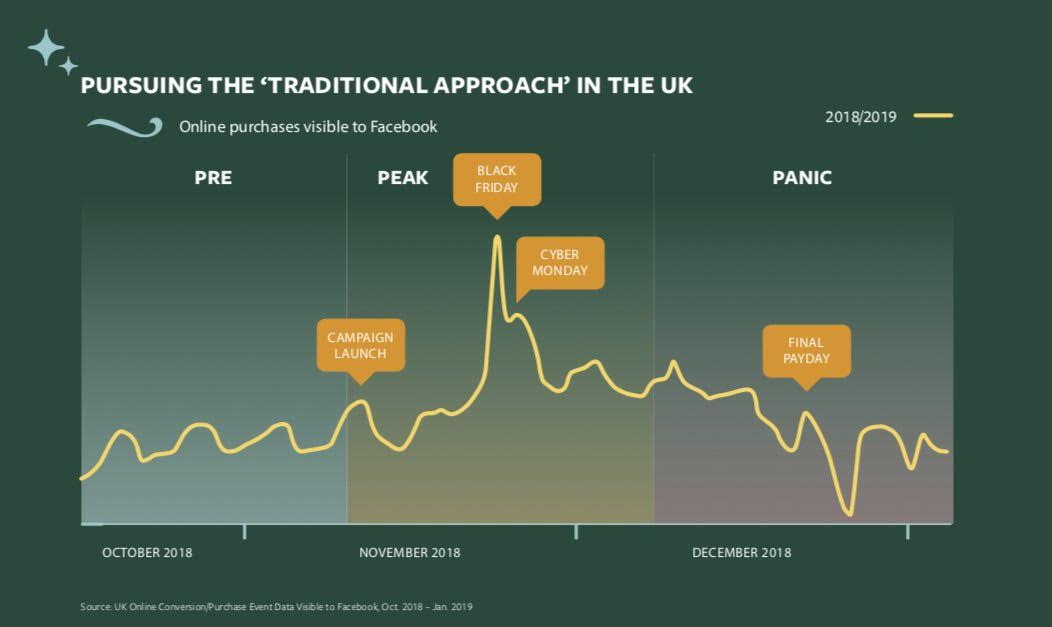 The occasion is especially popular with users of Facebook, who are 1.15x more likely than non-users to shop on Black Friday, and users of Instagram, who are 1.42 times more likely. Mobile-first shoppers are also keen to seize Black Friday deals, and are 1.27 times more likely to shop on Black Friday. [1]
The occasion is especially popular with users of Facebook, who are 1.15x more likely than non-users to shop on Black Friday, and users of Instagram, who are 1.42 times more likely. Mobile-first shoppers are also keen to seize Black Friday deals, and are 1.27 times more likely to shop on Black Friday. [1]
Black Friday in 2019 could be a bigger opportunity than last year because it lands on the last pay day before Christmas. It also falls closer to Christmas than any other Black Friday since 2013: There will be six fewer shopping days between Black Friday and Christmas in 2019, compared to 2018.
However, there is some evidence of a growing negativity and lack of urgency around Black Friday. Research from Mintel shows that over half of people (57 per cent) agree that Black Friday discounts aren’t as good as last year. [3]
In order to make sure your brand isn’t missing out consider using automatic placements across the Black Friday peak. This gives our ad delivery system more flexibility to get you more and better results.
Think Broader Audiences
Our insights show that audiences can shift dramatically when it comes to Christmas shopping. For example, British women were 1.54x more likely to make a tech purchase over the Christmas period than they were during the first quarter of the year. [4]
Facebook and Instagram are a powerful tool for reaching both gift givers and potential recipients — 71 per cent of Facebook and/or Instagram users surveyed globally in 2018 said they find the platforms to be influential in their Christmas shopping decisions. [1]
To best reach a wide range of shoppers, Facebook offers dynamic ads for broad audiences, which can help you reach people whove expressed an interest in your products (or products similar to yours), even if they havent visited your website or app yet.
If your brand is engaging with people who don’t usually buy your products or services, they may require more assistance than your usual customer. Consider creating a Messenger bot to help guide people who aren’t used to buying from you.
Remove friction
With stakes so high at Christmas, its crucial to ensure youre giving your customer a great experience. Any additional effort, step or inconvenience in the purchase journey is friction. Facebook IQ has worked with BCG to identify friction points that can occur offline and online across all stages of the journey. A failure to do this will cost ecommerce businesses an estimated £36bn in 2019 in the UK alone. [5]
Our research shows that as Christmas approaches, customers shift from focusing on discounts and free shipping to worrying about speed of delivery and availability. You can read more and download our white paper on our Zero Friction Future webpage.
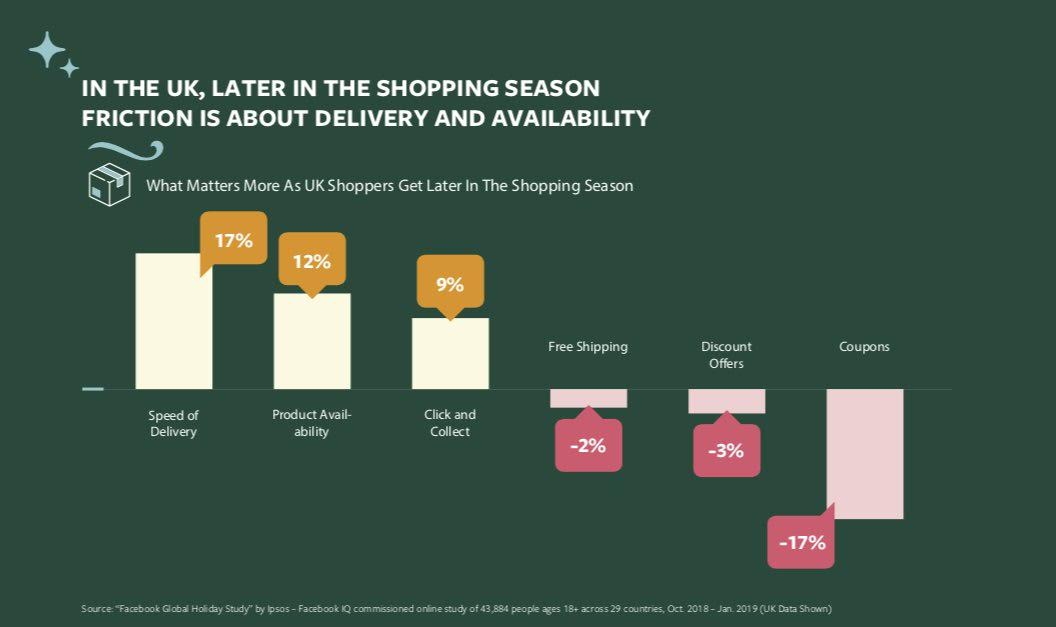 Creating a successful Christmas season for your brand isnt just about magic — its about insights. Facebook is here to support you throughout your Christmas campaign planning.
Creating a successful Christmas season for your brand isnt just about magic — its about insights. Facebook is here to support you throughout your Christmas campaign planning.
[1] Source: Facebook IQ commissioned online study by IPSOS – “Facebook Global Holiday Study”. Survey in 29 countries of 1,500 holiday shoppers per country, ages 18+.
[2] Source: Deloitte Retail Trends 2019
[3] Source: Mintel Christmas Gift Buying – Feb 2019 – UK
[4] UK online purchases visible to Facebook in Q4 2018 compared to UK online purchases visible to Facebook in Q1 2018
[5] Sources: “40 Cart Abandonment Rate Statistics,” Baymard Institute, Jun 2018. “Retail Ecommerce Sales in UK,” eMarketer, Oct 2018. Exchange rate of USD 1 = GBP 0.75, Oanda.com, Mar 1, 2019.






